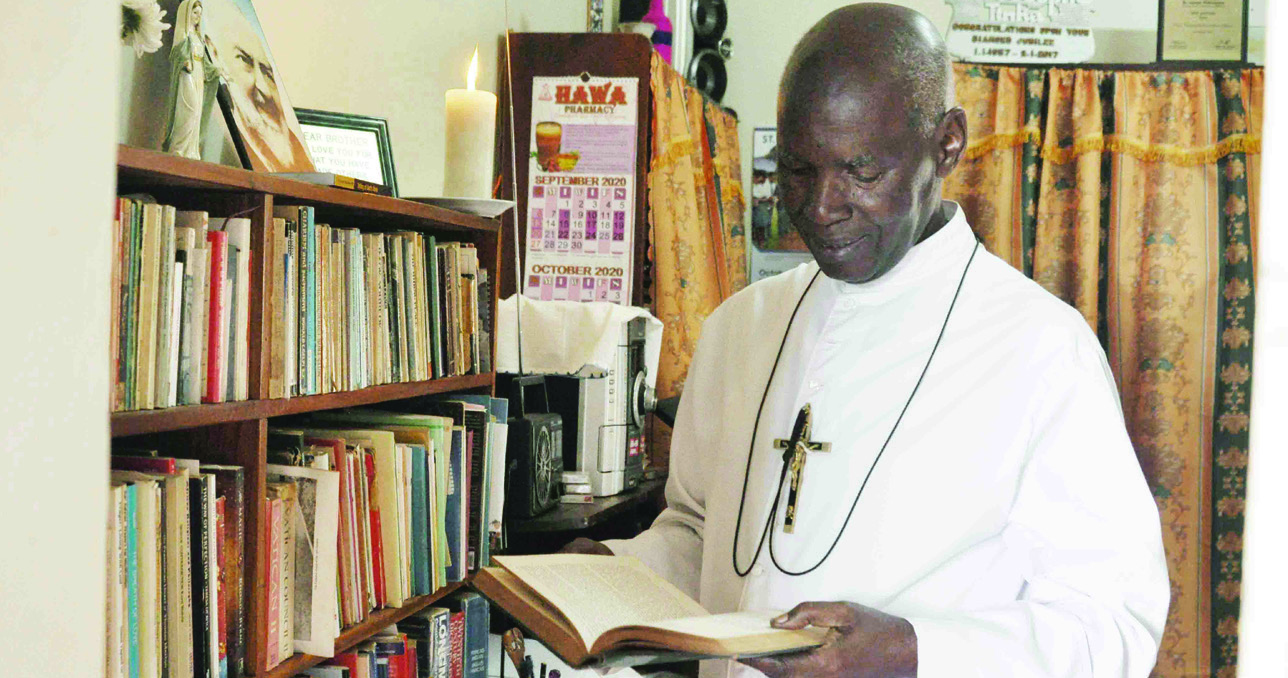This article was first publishd in the new Vision on January 13, 2021
By Philip Matogo
“Those of us who were fortunate enough to attend the greatest secondary school in Uganda in the early 1990s can never forget our great headteacher, Br Joseph Tinkasimire. He was a wonderful mentor,” says Lt Gen. Muhoozi Kainerugaba, the commander of the Special Forces Command.
Whether you went to St Mary’s College Kisubi (SMACK) or not, you cannot fail to appreciate the ardour infusing the general’s words with a fiery ring of truth. Tinkasimire’s book — Telling God’s Work: The Story of Br Joseph Tinkasimire, FICP — is testament to this time and how it shaped our times.
An intensely humble man, Tinkasimire’s gratitude to the Lord cannot be gainsaid, even though his father named him “Tinkasimire” which means, “I haven’t given thanks yet”.
“Brother Tinka”, as he was fondly known by students of SMACK, uses the whole book to give thanks in so many ways.
As a child, his mother says, he seemed to have the innate realisation that cleanliness is next to godliness and thus became meticulous about keeping clean.
Tinkasimire shares an anecdote about his aunt Victoria Byabali and sister Roza Kabonesa teasing him that, as a baby, his mother would come back from the garden dirty and he would refuse to breastfeed until his mother cleaned herself.
When he reached Primary Three at the age of 10 in 1947, he was prepared to make the Solemn Profession of Faith.
Instructed by the Daughter of St Teresa of the Child Jesus Sisters, DST, (Banyatereza) for two weeks, he passed his exams and made his sacramental confession.
One Saturday evening in October 1949, a dry stem of a shrub struck his left eye, leaving him blind in that eye. However, this never dented his spirit by making him feel sorry for himself. Tinkasimire seems to take all blessings and misfortunes as part of a moral covenant to take the good with the bad in order to winnow out the bad.
This is the connecting thread running through the smooth fabric of this literary masterpiece.
Without a doubt, this well-written book captures each of Tinkasimire’s milestones with such fluidity of pen.
For example, on December 31, 1956, he was declared a canonical novice so as to start his novitiate legally. This experience he sets forth elegantly in his simple yet sophisticated turn of phrase.
0n January 6, 1963, he made his perpetual profession of the three religious vows of poverty, chastity and obedience as he received life membership of the Institute of the Brothers of Christian Instruction.
Through his words, you can almost visualise the sun rising on his fortunes.
Thereupon, his life had many accomplishments, although sometimes it seems that the sun would set on his story.

For instance, in March 1979 at Nakulabye Parish Church, he survived a bomb blast as his last moments appeared to glimmer in the darkness of war.
His life is a testament of gratitude to the Lord for giving his life exemplary value.
Tinkasimire is a shining example of the humility that comes with unexpected possibilities of purpose and the willingness to fulfil one’s own possibilities.
The book cover says it all: A smiling man who is brimming with the joy of his faith; a faith he never takes lightly and so doesn’t bear false witness against his neighbour or the Lord.

